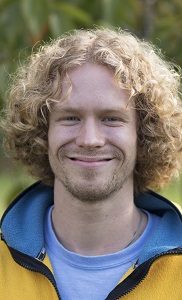Jack Eggington
Areas of interest
- Bioarchaeology
- Osteoarchaeology
- Paleopathology
- Industrial health
- The mother-infant dyad
Research projects
Health, diet, and social inequality in industrial Britain: a mother-infant perspective
Differences in maternal health and infant feeding have never been starker than in the eighteenth and nineteenth century, coinciding with an increasing socioeconomic gap between rich and poor. In a period of profound social change encompassing the industrial revolution, historical sources suggest mothers working in new factories practiced early weaning and bottle feeding, whilst the rich abandoned breastmilk for more fashionable formulas. With limited historical sources addressing this issue, direct evidence for the full extent of these cultural transitions and their impact on health is only available through the analysis of the skeletal remains of women and children themselves.
My study will test the belief that mothers, both rich and poor, abandoned breastfeeding for different reasons, but with potentially detrimental effects on infant health. It seeks to contribute to a better understanding of the relationship between maternal and child health and widening inequality at a crucial point in history.
My project is generously funded by the SWW DTP funding scheme.
Supervisors:
Professor Mary Lewis (University of Reading)
Dr Gundula Müldner (University of Reading)
Professor Keir Waddington (University of Cardiff)
Background
I hold a first class Bsc in Bioarchaeology and Msc (with distinction) from the University of York (United Kingdom). During my Master’s I developed an interest in post-medieval health and paleopathology, receiving a prize for the best dissertation in my cohort. My thesis consisted of a large data study focused on skeletal stress, stature and the link with socioeconomic status in post-medieval Britain. The study analysed the osteological data for thirteen different cemetery populations from northern England and London, and drew interesting conclusions on adult stature and non-adult health between different socioeconomic groups and geographic regions. I have a particular interest in understanding the interplay between diet, health and disease concerning the mother-infant dyad. I also have considerable experience in commercial archaeology and have exhumed numerous child and adult inhumations within a Roman context.
